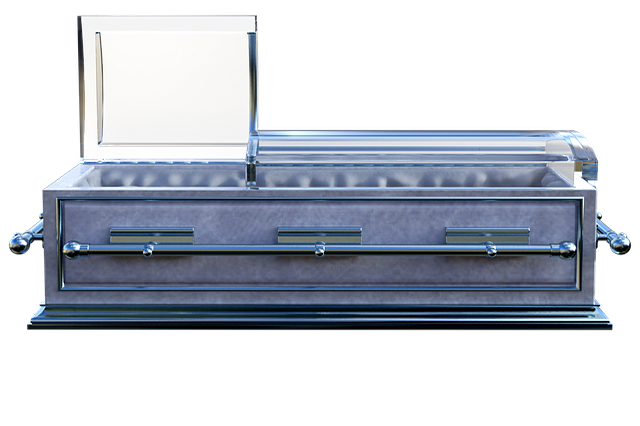
This blog post will discuss how being chubby is different from being fat. Even though people often use these terms interchangeably, they mean different things. Chubby means having a round, plump look, while Fat means having too much body fat. We’ll look at the medical definitions, possible health risks, how society sees these terms, and how to get and stay at a healthy weight. Come with us as we explore the differences between chubby and fat.
Contents
- 1 What is the meaning of chubby?
- 2 What is the meaning of Fat?
- 3 What is considered weight for chubby?
- 4 what is considered weight for Fat?
- 5 What is the different chubby vs Fat?
- 6 Importance of understanding the difference between chubby and fat
- 7 Risks associated with being chubby
- 8 Risks associated with being fat
- 9 How to achieve a healthy weight?
What is the meaning of chubby?
The word “chubby” is often used to describe someone who looks round or plump but is not necessarily obese. It means that the person is cute, endearing, or attractive because they are round, not because they have too much body fat.
It’s important to know that “chubby” is often seen as less formal and less politically correct than “overweight.”
What is the meaning of Fat?
Fat means that you have too much Fat in your body. It’s a term for a medical condition in which a person has so much Fat on their body that it could hurt their health. When a person has too much body fat, they are considered obese. Obesity is a serious health problem that makes people more likely to get diseases and health problems like diabetes, heart disease, and some types of cancer.
It’s important to remember that the word “fat” is often seen as less politically correct and can be offensive or make people feel bad about themselves. It’s important to use it carefully and not as an insult or to say something bad about someone. A better word would be “obese” when talking about a medical condition or “overweight” when talking about how a person looks.
What is considered weight for chubby?
“Chubby” is a relative and subjective term that doesn’t have a set weight. People who are overweight but not necessarily obese are often called “chubby.” They may look round or plump, but their weight isn’t always high enough to be dangerous for their health.
It’s important to remember that “chubby” can mean different things to different people depending on their body type, muscle mass, and overall health. The body mass index (BMI) is a common indicator of whether someone is underweight, normal, overweight, or obese. But BMI is only sometimes a good health measure because it doesn’t consider muscle mass or body composition.
It is best to talk to a doctor, dietitian, or nutritionist to find out your healthy weight and get personalized advice on how to get there.
You may read: Do Guys Really Prefer Women with Chubby Bellies?
what is considered weight for Fat?
To be obese means to have too much Fat in your body. People often use the body mass index (BMI) to figure out if they are overweight or obese. A person is considered obese if their BMI is 30 or more. But it’s important to remember that BMI is only sometimes a good measure of health because it doesn’t consider muscle mass or body composition.
A person’s body fat percentage is another way to figure out if they are overweight. The American Council on Exercise (ACE) says the following about body fat percentage:
Men: 6-24% (lean) – 25-31% (acceptable) – 32% or more (obese)
Women: 16-30% (thin) – 31-36% (acceptable) – 37% or more (obese)
It’s important to remember that everyone has a different body, and what one person might think is healthy or normal might not be the same for someone else. So, it’s best to talk to a health professional like a doctor, dietitian, or nutritionist to find out your healthy weight and get personalized advice on how to get there.
What is the different chubby vs Fat?
People often use “chubby” and “fat” to describe a person’s weight or body shape, but these words mean different things.
People who are overweight but not necessarily obese are often called “chubby” because they look round or plump. It means that the person is cute, endearing, or attractive because they are round, not because they have too much body fat. People often think that “chubby” is less formal and politically correct than “overweight.”
On the other hand, to be “fat” means to have too much body fat. It’s a term for a medical condition in which a person has so much Fat on their body that it could hurt their health. When people have too much body fat, they are considered obese. Obesity is a serious health problem that makes people more likely to get diseases and health problems like diabetes, heart disease, and some types of cancer.
In short, “chubby” refers to someone who looks round and plump and is often used to describe someone who is overweight but not necessarily obese. “Fat,” on the other hand, refers to someone who has too much body fat and is often used to describe a medical condition of obesity.
| Category | Definition | Body Mass Index (BMI) |
| Chubby | Excess weight, but not necessarily considered obese | Overweight (BMI 25-29) |
| Fat | Excess body fat, considered obese | Obese (BMI over 30) |
It’s worth noting that BMI is only sometimes the best indicator of one’s body composition, as it doesn’t consider muscle mass, bone density, and body fat distribution. It’s always best to consult with a healthcare professional to determine whether you are chubby or fat and what the best plan for weight loss would be.
You may read: Why do slim guys like chubby ladies?
Importance of understanding the difference between chubby and fat
Several things make it important to know the difference between being chubby and being Fat:
Health: Being chubby may not always be bad for your health, but being fat or obese can make you more likely to get diabetes, heart disease, and cancer. People can make better decisions about their health and well-being if they know the difference between them.
Stigma: The word “fat” can be offensive and make people feel bad about themselves because it has been used as an insult or put-down. When people know the difference between chubby and fat, they can use more appropriate, sensitive language and doesn’t make people feel bad about themselves.
Self-image: Knowing the difference between being “chubby” and being “Fat” can help people have a good view of themselves and their bodies. It can help them understand that being healthy is more important than being a certain size or shape.
Accurate assessment: Knowing the difference between “chubby” and “Fat” can help people figure out how their body is made up and how much they weigh. It can help them see that weight alone isn’t a good sign of health and that there are other things to think about, like muscle mass and body composition.
Advice: Knowing the difference between “chubby” and “Fat” can help people get personalized advice from health professionals, like doctors, dietitians, or nutritionists, on how to reach and keep a healthy weight.
Understanding the difference between being chubby and being Fat is important for several reasons:
Health: Being chubby may not necessarily be a health risk while being fat or obese can increase the risk of various health problems such as diabetes, heart disease, and certain types of cancer. Understanding the difference can help individuals make informed decisions about their health and well-being.
Stigma: The term “fat” can be stigmatizing and offensive to some individuals, as it has been used as an insult or derogatory comment. By understanding the difference between chubby and fat, individuals can use language that is more appropriate, sensitive, and non-stigmatizing.
Self-image: Understanding the difference between chubby and Fat can help individuals develop a positive self-image and body image. It can help them to focus on the importance of being healthy rather than fitting into a certain size or shape.
Accurate assessment: Understanding the difference between chubby and Fat can help individuals accurately assess their body composition and weight. It can help them understand that weight alone is not a good indicator of health and that other factors, such as muscle mass and body composition, exist to consider.
Personalized advice: Understanding the difference between chubby and Fat can help individuals get personalized advice from healthcare professionals, such as doctors, dietitians, or nutritionists, on how to achieve and maintain a healthy weight.
Risks associated with being chubby
Even though being overweight might not be as bad for your health as being obese, there are still some risks that come with being overweight. Here are some of these risks:
Cardiovascular disease: Being overweight makes you more likely to get heart disease or a stroke, which are both types of cardiovascular disease. High blood pressure, high cholesterol, and diabetes can all be caused by having too much body fat. These are all risk factors for heart disease.
A metabolic syndrome is a group of health problems that happen together. These problems include high blood sugar, high blood pressure, high triglycerides, and low HDL cholesterol. Being overweight makes you more likely to get metabolic syndrome, which can make you more likely to get diabetes and heart disease.
Type 2 diabetes: Being overweight makes you more likely to get type 2 diabetes, a condition in which your body can’t use and store sugar properly (a type of sugar). This can cause high blood sugar and make you more likely to get heart disease, kidney disease, or go blind.
Some types of cancer: Being overweight makes it more likely that you will get endometrial, breast, colon, or kidney cancer.
Osteoarthritis: Being overweight makes you more likely to get osteoarthritis, a type of arthritis that affects the hips, knees, and lower back. The extra weight puts stress on these joints, causing pain and swelling.
It’s important to remember that being overweight or fat is sometimes good for your health. Depending on things like their overall health, muscle mass, and body composition, different people will have different levels of risk. If you’re worried about your weight or health, you should talk to a doctor, dietitian, or nutritionist.
Risks associated with being fat
Being overweight or obese is bad for your health and can make you more likely to get sick or have other health problems. Some risks that come with being overweight are:
Cardiovascular disease: Being overweight makes you more likely to get heart disease or a stroke, which are both types of cardiovascular disease. High blood pressure, high cholesterol, and diabetes can all be caused by having too much body fat. These are all risk factors for heart disease.
A metabolic syndrome is a group of health problems that happen together. These problems include high blood sugar, high blood pressure, high triglycerides, and low HDL cholesterol. Being overweight makes you more likely to get metabolic syndrome, which can make you more likely to get diabetes and heart disease.
Type 2 diabetes: Being overweight makes you more likely to get type 2 diabetes, a disease in which the body can’t use and store sugar properly (a type of sugar). This can cause high blood sugar and make you more likely to get heart disease, kidney disease, or go blind.
Some kinds of cancer: Being overweight makes it more likely that you will get endometrial, breast, colon, or kidney cancer.
Osteoarthritis: Being overweight makes you more likely to get this type of arthritis, which affects the hips, knees, and lower back. The extra weight puts stress on these joints, causing pain and swelling.
Sleep Apnea: Being overweight or obese makes you more likely to get sleep apnea, a condition in which you stop repeatedly breathing while you sleep.
Non-alcoholic fatty liver disease (NAFLD): Being overweight or obese makes you more likely to get NAFLD, a condition in which the liver stores too much Fat.
Gallbladder disease: People who are overweight or obese are more likely to get gallbladder disease, which can cause gallstones.
It’s important to remember that being overweight or obese is bad for your health, and you should work with doctors, dietitians, or nutritionists to reach and keep a healthy weight.
You may read: What’s Considered Chubby for Guys?
How to achieve a healthy weight?
A healthy weight is important for your health and well-being as a whole. Here are some things you can do to get to a healthy weight:
Eat a balanced diet. Eating many fruits, vegetables, whole grains, and lean proteins can help you reach a healthy weight. Avoid processed foods, sugary drinks, and snacks with a lot of calories.
Control the size of your meals. Eating smaller meals more often can help you keep track of your calories and prevent overeating. Use smaller plates and bowls to track how much you’re eating.
Increase your physical activity. If you work out regularly, you can burn calories and lose weight. Aim for at least 30 minutes of moderate exercise daily, like brisk walking. You can also do resistance exercises and lift weights to build muscle mass.
Get enough sleep: Getting enough sleep is important for managing your weight. If you don’t get enough sleep, it can mess up the hormones that control hunger, making you gain weight. Try to sleep between 7 and 9 hours each night.
Stress can make it hard to lose weight and cause you to gain weight. Try yoga, meditation, or exercise to help you healthily deal with stress.
Work with a healthcare professional. Talk to a doctor, dietitian, or nutritionist to make a plan that fits your needs and goals.
It’s important to remember that losing weight is a slow process, and a healthy way of life is more important than a quick fix. It might take time to get to the weight you want, but you can improve your health and well-being by making lasting changes.
Ultimately, our physical and mental health needs to know the difference between chubby and Fat. Chubby and Fat are both words for having too much weight, but chubby is considered overweight, and Fat is considered obese. Being overweight or obese can make you more likely to get diabetes, heart disease, or cancer. But with a healthy diet and regular exercise, it is possible to reach and keep a healthy weight.
It’s important to remember that losing weight is a slow process, and a healthy way of life is more important than a quick fix. Talk to a doctor before starting any weight loss plan, and be bold and ask for help if you’re having trouble.






